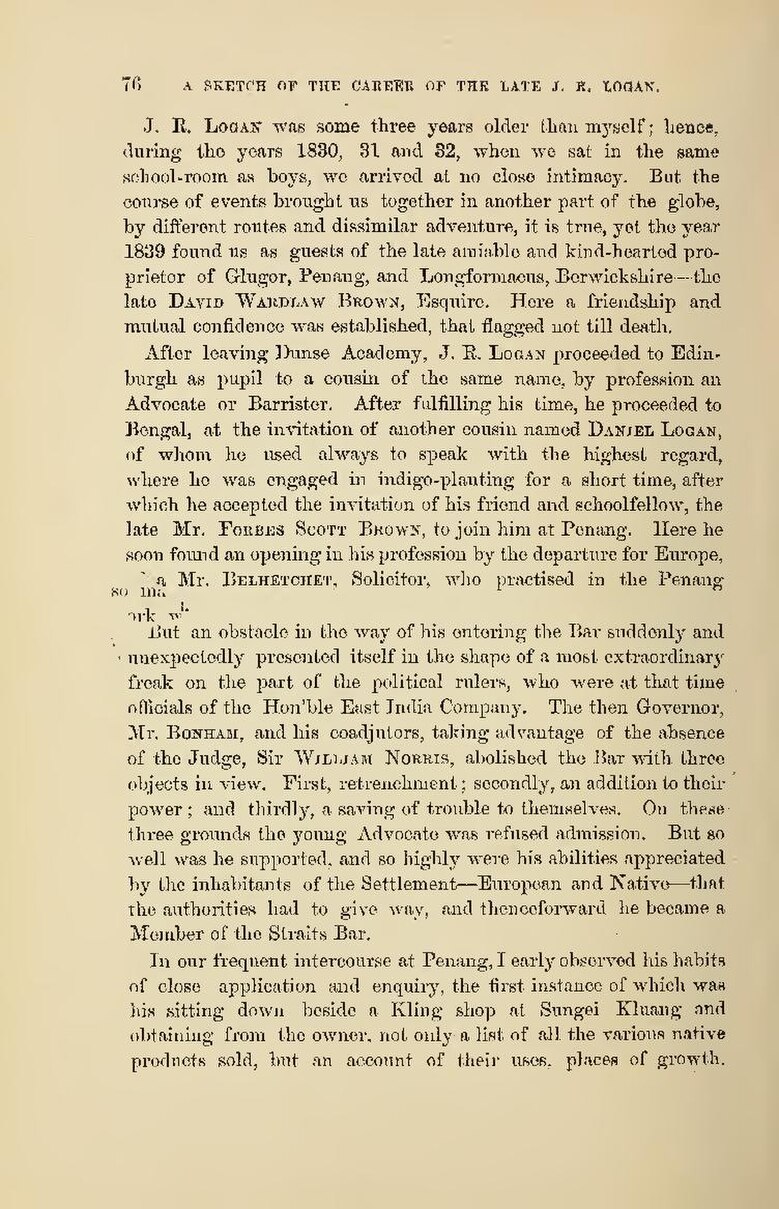J. R. Logan was some three years older than myself; hence, during the years 1830, 31 and 32, when we sat in the same school-room as boys, we arrived at no close intimacy. But the course of events brought us together in another part of the globe, by different routes and dissimilar adventure, it is true, yet the year 1839 found us as guests of the late amiable and kind-hearted proprietor of Glugor, Penang, and Longformacus, Berwickshire—the late David Wardlaw Brown, Esquire. Here a friendship and mutual confidence was established, that flagged not till death.
After leaving Dunse Academy, J. R. Logan proceeded to Edinburgh as pupil to a cousin of the same name, by profession an Advocate or Barrister. After fulfilling his time, he proceeded to Bengal, at the invitation of another cousin named Daniel Logan, of whom he used always to speak with the highest regard, where he was engaged in indigo-planting for a short time, after which he accepted the invitation of his friend and schoolfellow, the late Mr. Forbes Scott Brown, to join him at Penang. Here he soon found an opening in his profession by the departure for Europe, of a Mr. Belhetchet, Solicitor, who practised in the Penang (illegible text).
But an obstacle in the way of his entering the Bar suddenly and unexpectedly presented itself in the shape of a most extraordinary freak on the part of the political rulers, who were at that time officials of the Hon'ble East India Company. The then Governor, Mr. Bonham, and his coadjutors, taking advantage of the absence of the Judge, Sir William Norris, abolished the Bar with three objects in view. First, retrenchment; secondly, an addition to their power; and thirdly, a saving of trouble to themselves. On these three grounds the young Advocate was refused admission. But so well was he supported, and so highly were his abilities appreciated by the inhabitants of the Settlement—European and Native—that the authorities had to give way, and thenceforward he became a Member of the Straits Bar.
In our frequent intercourse at Penang, I early observed his habits of close application and enquiry, the first instance of which was his sitting down beside a Kling shop at Sungei Kluang and obtaining from the owner, not only a list of all the various native products sold, but an account of their uses, places of growth.
